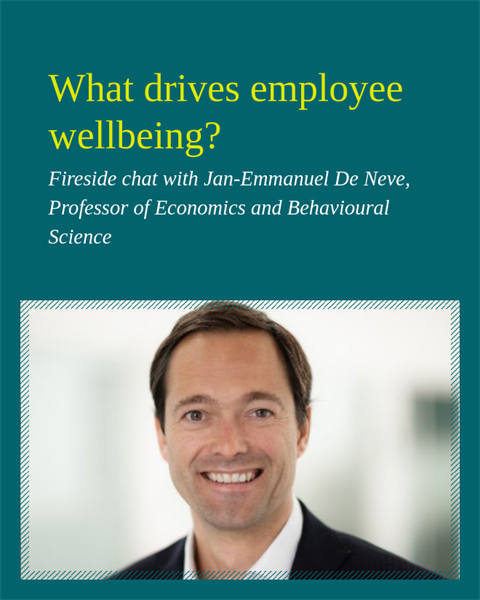In this excerpt from the event Jan-Emmanuel shares recent research from a study with BT on the link between how employees feel as individuals and productivity.
View the full session for a one-time payment of £30.00. If you are a MindForward Alliance or CMHA member contact Vicki Haxton to access a free copy of this recording.
Key takeaways from the event included:
- There is robust evidence that employee wellbeing correlates strongly with financial performance of listed companies, and research has shown that an investment strategy based on business happiness data outperforms the big benchmark indices.
- Underlying this, research has now proven a causal link between employee happiness and productivity. The more complex the work – the more social and emotional intelligence that it required – the greater the difference happiness made to productivity.
- Employee happiness data also influences applicant behaviour. Research shows that job seekers will actively avoid applying for roles in companies with below-average happiness data.
- The quality of colleague/manager relationships, a sense of belonging and a clear role in an organisation are drivers that, on average, most strongly influence employee wellbeing, research shows. However, this will vary across businesses.
- Analysis of the drivers of your people’s wellbeing is essential to inform which interventions and services will be most effective in raising wellbeing scores.





